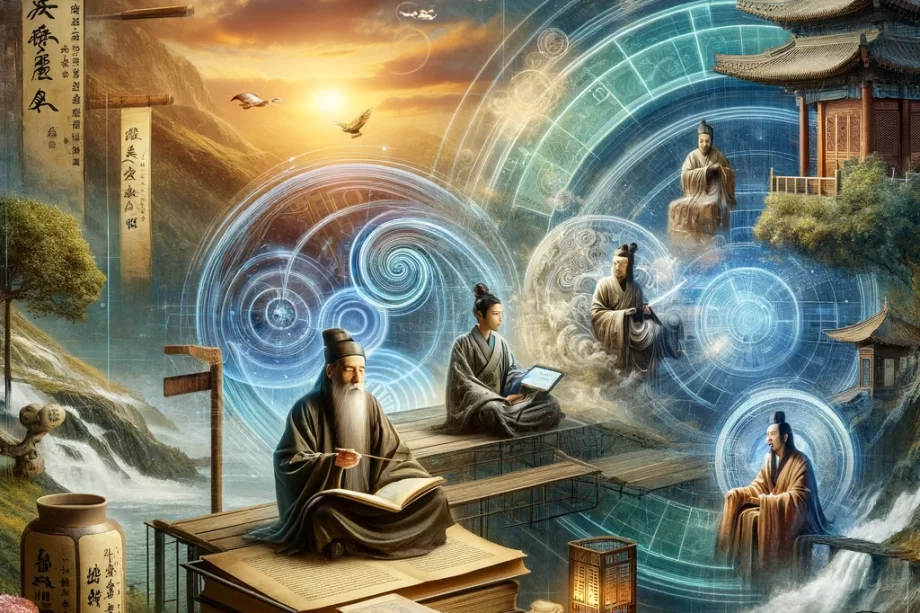Most contemporary philosophers often explore into Western schools of thought, but few explore the rich philosophical traditions of ancient China. This blog post aims to shed light on the valuable insights that modern philosophers can glean from ancient Chinese wisdom. From the teachings of Confucius to the principles of Taoism, there is much to be learned from the profound ideas and practices that have shaped Chinese philosophy for centuries. By examining these ancient philosophies, modern thinkers can gain a deeper understanding of ethics, metaphysics, and the nature of existence, ultimately enriching their own philosophical inquiries.
Key Tenets of Ancient Chinese Philosophy
Harmony with Nature
Tenets of ancient Chinese philosophy emphasize the importance of living in harmony with nature. This belief stresses the interconnectedness and interdependence of all things in the universe. By aligning oneself with nature and understanding its rhythms, one can achieve balance and inner peace.
The Importance of Balance and the Middle Way
Philosophy in ancient China highlights the significance of balance and following the Middle Way. This concept suggests avoiding extremes and finding equilibrium in all aspects of life. By maintaining a middle ground, one can navigate through life’s challenges with mindfulness and wisdom.
Understanding
It is crucial to understand that the concept of balance and the Middle Way in ancient Chinese philosophy extends beyond just external actions. It also pertains to internal harmony, such as balancing emotions, thoughts, and desires. By cultivating a harmonious inner world, individuals can better navigate the complexities of existence.
Ancient Chinese Wisdom and Modern Philosophical Issues
Ethics and Morality
Modern philosophers can learn valuable lessons from ancient Chinese wisdom in ethics and morality. The emphasis on harmony, balance, and the interconnectedness of all things in Chinese philosophy can offer a fresh perspective on moral dilemmas and ethical decision-making. By incorporating principles such as Confucian ideas of benevolence (ren) and righteousness (yi), contemporary thinkers can enrich their understanding of moral philosophy.
Political Philosophy and Governance
With regards to political philosophy and governance, ancient Chinese wisdom provides insights into effective leadership and the relationship between rulers and the ruled. The concept of the Mandate of Heaven, as espoused in Confucianism and Daoism, highlights the importance of virtuous leadership and the responsibility of rulers to govern with the well-being of the people in mind.
To examine deeper into political philosophy and governance in ancient Chinese thought, one can explore texts such as Confucius’ Analects and The Art of War by Sun Tzu. These ancient texts offer profound wisdom on topics ranging from leadership strategies to statecraft, providing valuable lessons for contemporary political theorists and policymakers.
Ancient Chinese Thought and Contemporary Philosophy
| Similarities | Differences |
| Chinese philosophy shares similarities with modern philosophical thought in its emphasis on the balance of opposing forces, such as yin and yang, which is akin to modern theories of dialectics. Both philosophies focus on harmony, balance, and the interconnectedness of all things in the universe. | For modern philosophy, the major differences lie in the approach to ethics and metaphysics. While Chinese philosophy often focuses on harmony with the natural world and the self, contemporary philosophy tends to center more on individual rights, moral principles, and abstract concepts. This distinction can lead to different perspectives on the purpose of life and the nature of reality. |
Applying Ancient Principles to Modern Life
Personal Development and Self-Cultivation
Once again, ancient Chinese wisdom offers valuable insights that can be applied to modern life, particularly in personal development and self-cultivation. Life in ancient China revolved around the idea of self-improvement through practices such as meditation, introspection, and mindfulness. These principles can guide individuals in navigating the complexities of modern life, helping them find balance, inner peace, and personal growth.
Social Responsibility and Community Well-being
Modern society can benefit immensely from the ancient Chinese emphasis on social responsibility and community well-being. In ancient China, individuals were encouraged to contribute to the betterment of society through acts of kindness, charity, and collaboration. These principles can inspire modern communities to foster a sense of unity, empathy, and mutual support, ultimately creating a more harmonious and compassionate society.
Conclusion
Drawing together modern philosophical thought and ancient Chinese wisdom can offer valuable insights for contemporary scholars. The principles of balance, harmony, and adaptability found in ancient Chinese teachings can provide a fresh perspective on issues in ethics, leadership, and decision-making. By embracing the wisdom of the ages, modern philosophers can develop a deeper understanding of human nature and cultivate a more holistic approach to problem-solving. For further exploration on this topic, check out Wisdom of the Ages: Business Lessons from Ancient China.
